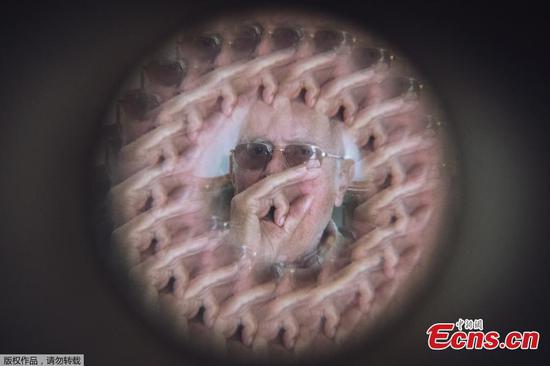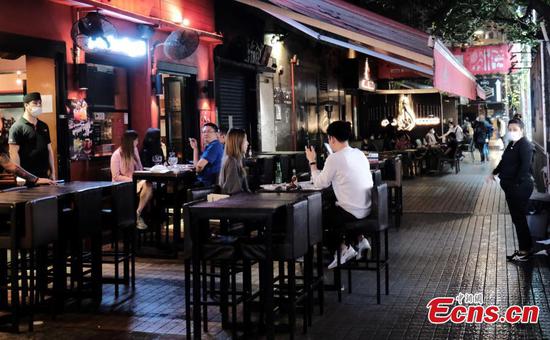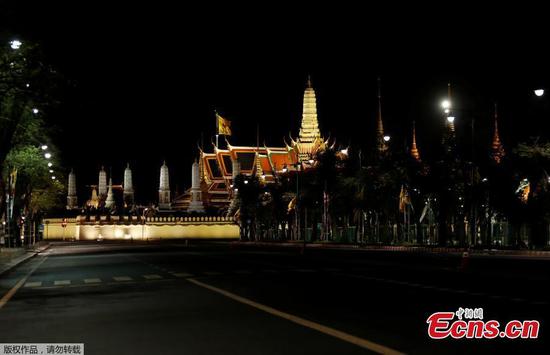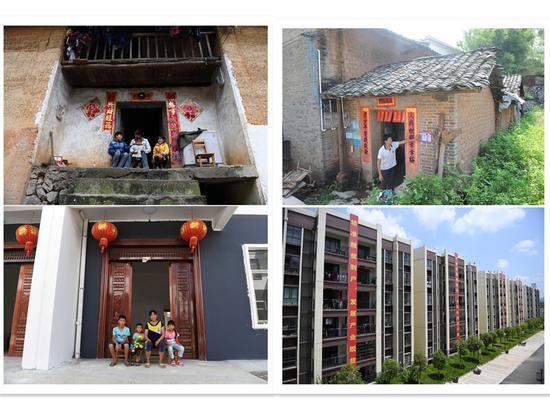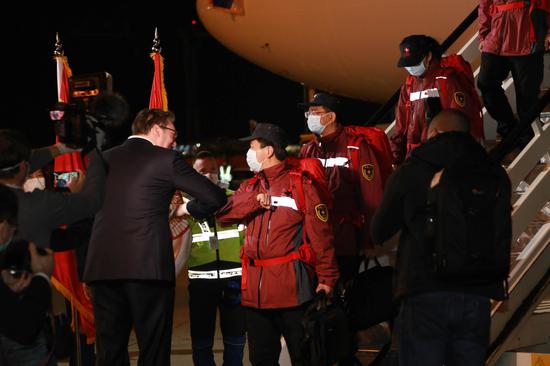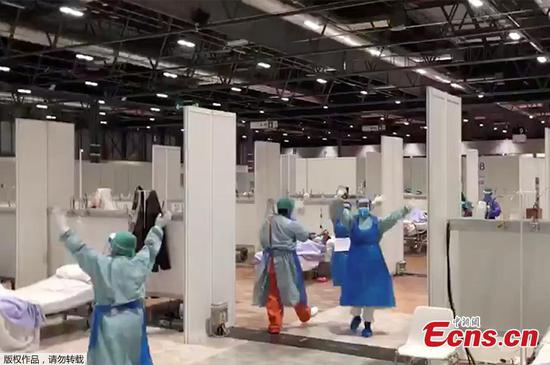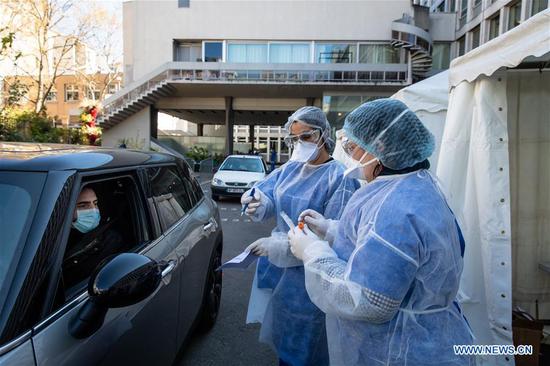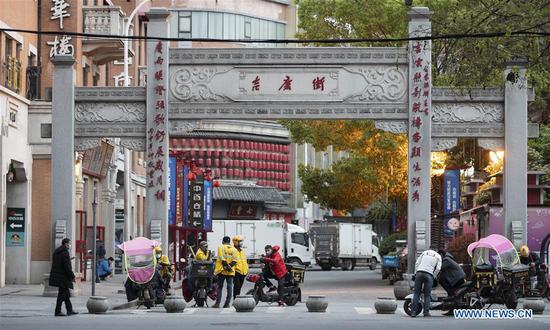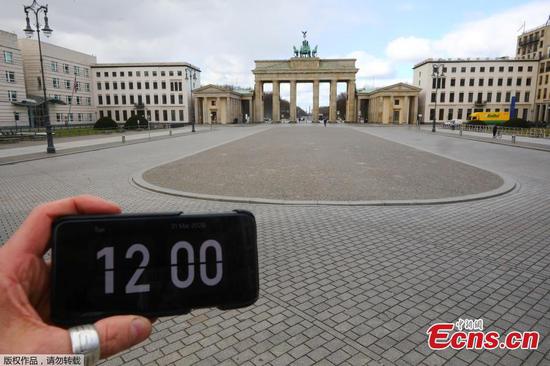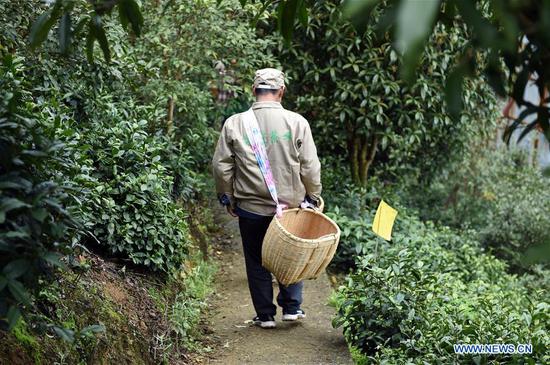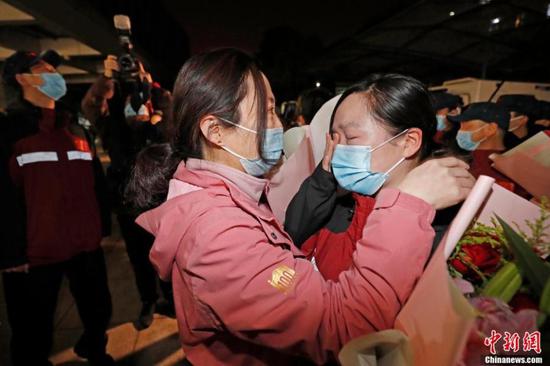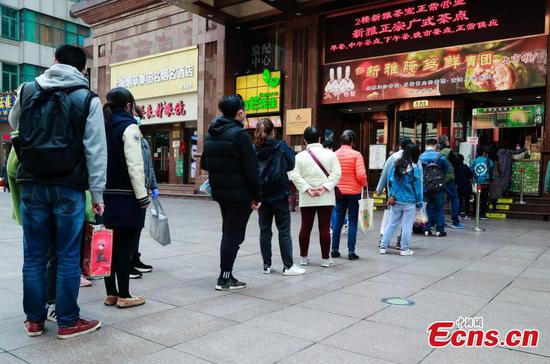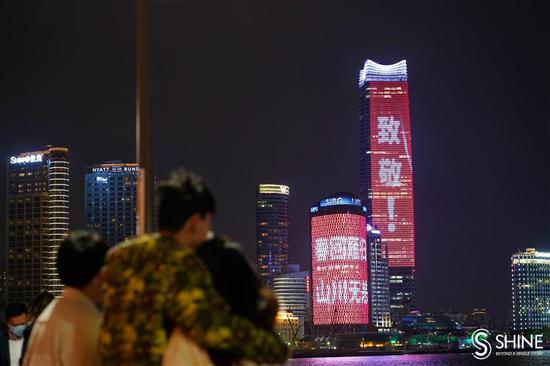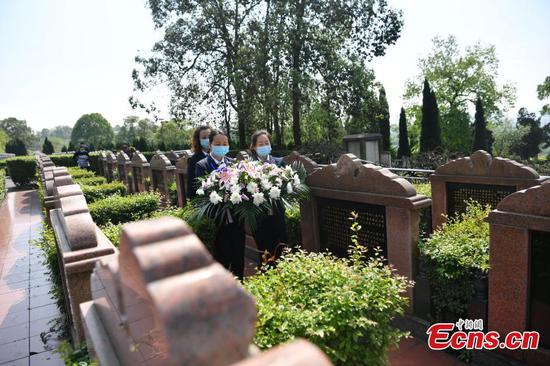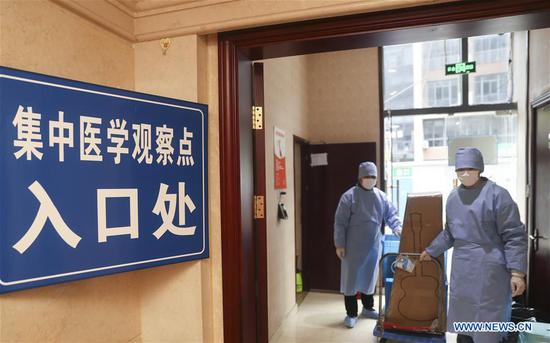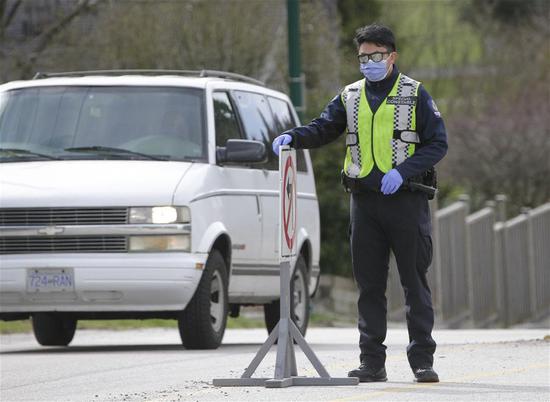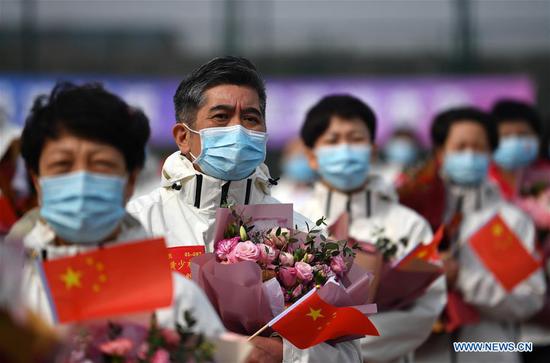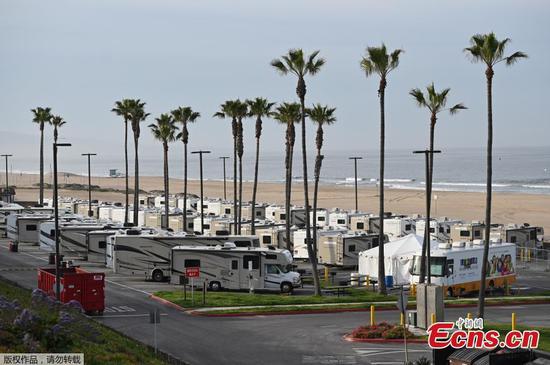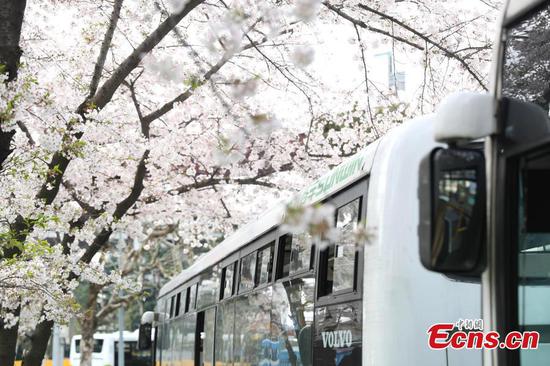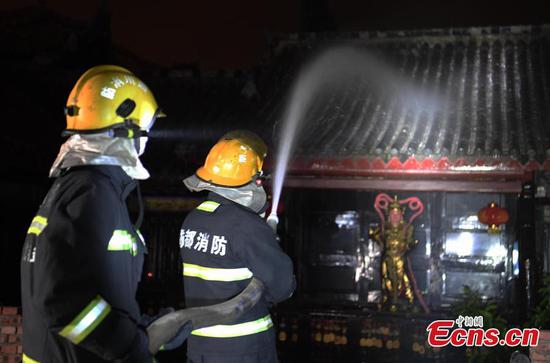The Basic Law has allowed Hong Kong to achieve a smooth return to the motherland and maintain its prosperity and stability, some of the members who participated in the consultation and drafting of the Basic Law of the Hong Kong Special Administrative Region have said.
They called on the public to respect the authority of the Basic Law and join hands to promote Hong Kong's long-term prosperity and stability under the framework of "one country, two systems."
This year marks the 30th anniversary of the promulgation of the Basic Law.
Andrew Fung, a former member of the Basic Law Consultative Committee, told Xinhua in a recent interview that in the 1980's, his consulting firm was commissioned by the central government to have a comprehensive study on Hong Kong's system with the participation of experts and scholars.
"Back then, many officials from the mainland wanted to know more about Hong Kong, hoping the content of the Basic Law harmonize with the future system of Hong Kong," Fung said, adding that the central government was willing to understand Hong Kong's system and hoped Hong Kong people can govern Hong Kong well.
Fung recalled that there were more than 100 members in the consultative committee and they discussed various aspects of the Basic Law in groups. "My deepest feeling was that both members of the committee and the public shared the same wish which was to excel in working out the Basic Law," he said.
"It is generally believed that the Basic Law fully reflects the demands of all parties and can best resolve contradictions in different aspects," Fung said, adding drafting the Basic Law was a great challenge and it relied heavily on mutual trust and understanding so that a consensus could be reached. After its promulgation, the Basic Law has won wide support from Hong Kong society and the rest of the world, said Fung.
"The drafting of the Basic Law was finally completed in an orderly manner, enabling Hong Kong to achieve a smooth transition and achieve its goal of continued stability and prosperity," Timothy Fok, a former member of the Basic Law Consultative Committee, said.
Fok said that the drafting, consultation and implementation of the Basic Law have successfully realized "one country, two systems" which has pushed forward with the promotion of national unity.
"One country, two systems," based on the Basic Law, is a great institutional innovation, which has given full consideration to Hong Kong's special circumstances and the interests of Hong Kong residents, and effectively promoted Hong Kong's prosperity and stability, Fok said, adding the implementation of the Basic Law has proved that "one country, two systems" is feasible and is the best institutional arrangement for Hong Kong.
Chang Ka Mun, former Hong Kong member of the National Committee of the Chinese People's Political Consultative Conference, said starting from 1995, some people thought that Hong Kong would no longer enjoy prosperity and stability after returning to the motherland.
Chang said he vividly remembered that at the ceremony marking Hong Kong's return to the motherland in 1997, among the about 2,000 journalists covering the the event, quite a number of them were war correspondents who carried with them equipment for war coverage, because they believed there would inevitably be a war in Hong Kong during the course of reunification.
Facts have proved that Hong Kong's return to the motherland was smooth and stable, Chang said, adding "this is because the Basic Law and 'one country, two systems' have been upheld and emphasized."
In addition, for more than 20 years after its return to the motherland, Hong Kong in general has maintained social stability and economic prosperity, with a steady growth of GDP and its role as the base of global manufacturing service, trade supply chain center and financial center remaining firm, said Chang.
Many international research institutions have also found that Hong Kong has remained the freest economy in the world over the past few decades, Chang said.
"Foreign companies come to invest because they have confidence in Hong Kong," Chang said, adding that Hong Kong has fully implemented the Basic Law and people realized that Hong Kong is still a well-governed and well-functioning society, and a good place to do business.
Chang said that in recent years, foreign powers which aim to suppress the rise of China colluded with local opposition forces and intentionally misinterpreted the Basic Law, and brainwashed and incited young people, leading to the social unrest in Hong Kong in the second half of 2019 and greatly damaging Hong Kong's prosperity and stability.
"The fact that the Basic Law and 'one country, two systems' have not been fully and accurately understood is the main reason for the social unrest in Hong Kong in recent years," Chang said.
Fung suggested that Hong Kong readjust the publicity and education approach regarding the Basic Law in a way that suits the life style and language habits of Hong Kong residents and make it is easy to understand, and raise public awareness of national security and sovereignty.
Fok said there is a need to strengthen national education and education on the rule of law among young people in Hong Kong, to help them build a correct national and ethnic sense, and learn to think about political issues rationally and peacefully.
"In face of new changes, the Basic Law and 'one country, two systems' have been the stabilizing forces. If we can effectively safeguard the integrity of the Basic Law, we will help Hong Kong overcome differences and resolve social disputes," he added.









